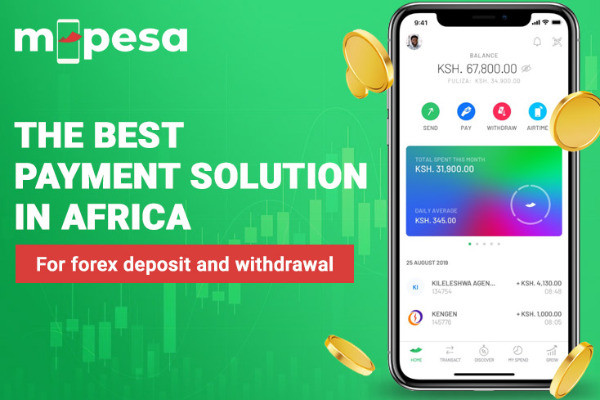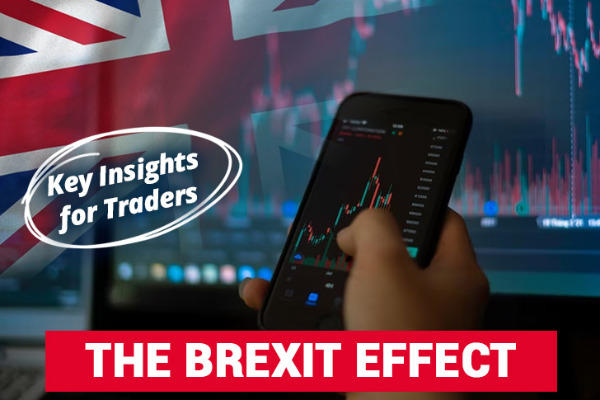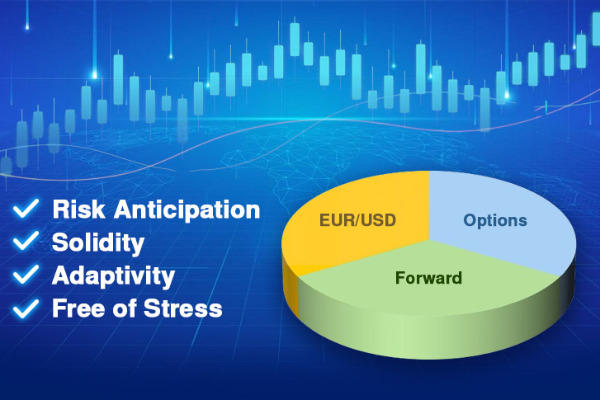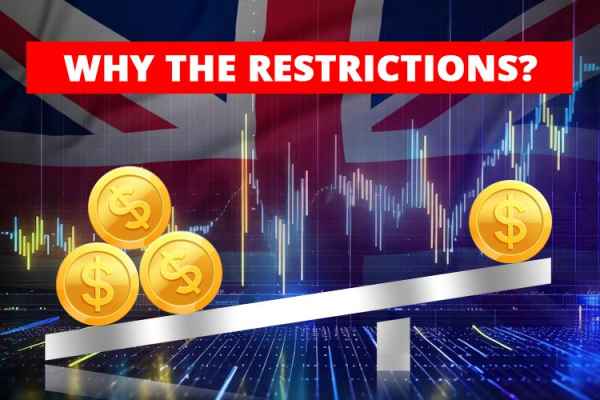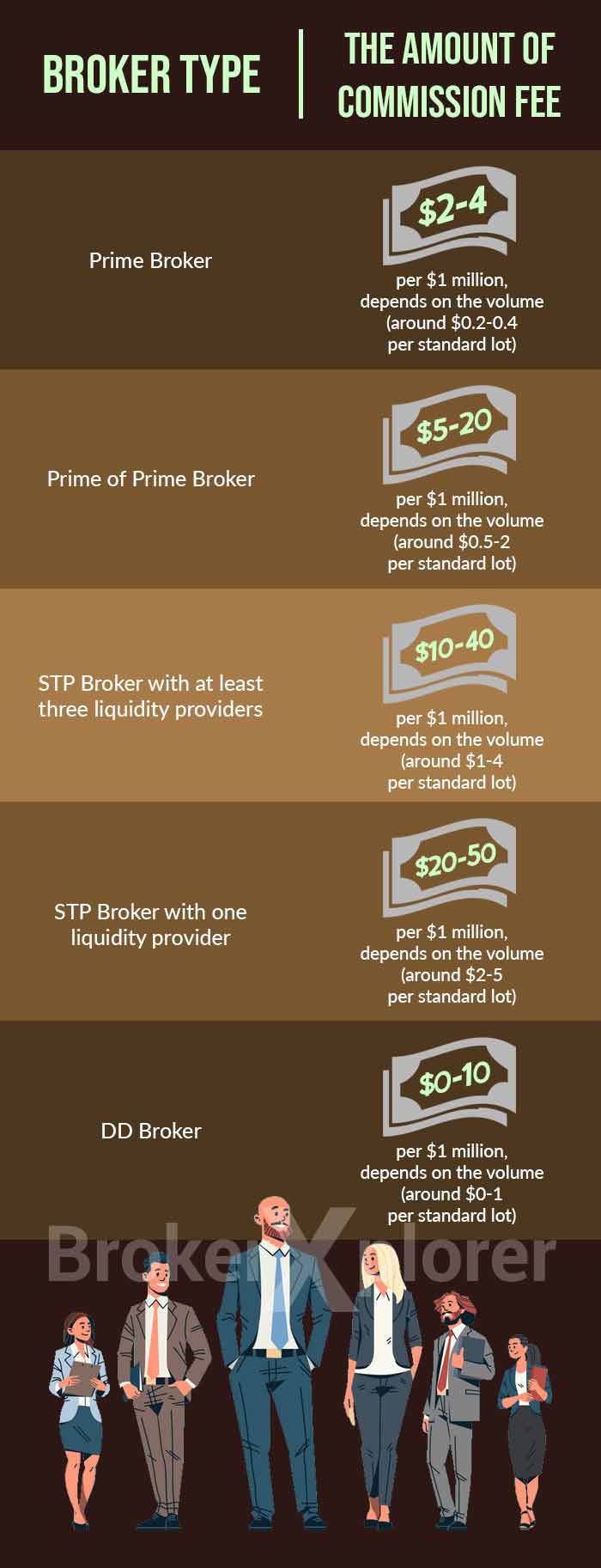Financial inclusion has finally been realized in Africa with the help of forex trading. How does it happen and what purpose can forex brokers bring to improve that?

A changing trend has emerged over the past few years, in which more and more African traders enter the global forex market in search of new fortunes and more financial stability.
Forex trading in particular has shown significant growth in some of the fastest-growing economies in Africa, which paints a promising future for the development of financial inclusion in the area.
Understanding Financial Inclusion in Africa
Africa has long had a substantial number of unbanked or underbanked individuals. They lack access to crucial financial tools such as savings accounts, credit facilities, and investment opportunities. This financial exclusion perpetuates poverty, stunts economic growth, and hinders overall development.
Financial inclusion, at its core, revolves around ensuring that financial services are accessible to everyone, regardless of their economic standing. There are many foreign platforms, especially FX brokers that accept African traders. This in turn helps increase financial inclusion by motivating people to be involved in the industry.
Forex Trading as a Gateway to Financial Inclusion
For individuals with limited access to capital and developing local capital markets, forex trading can be a great getaway to financial inclusion, as the promise of leveraged forex trades, high buying power, and lucrative returns gain popularity among underserved communities and boost demand for financial literacy and access to banking and related services.
Successful trading communities can generate plenty of revenue for local governments as well, which can improve the living conduits and access to basic services for more and more people — improving the overall banked population in countries around Africa.
See Also:
How Is Forex Trading in Africa So Far?
To track how the capital markets and forex trading increase financial inclusion in Africa, we can look at the total number of active brokerage accounts and their growth dynamic across the continent.
For example, the total number of active FX brokerage accounts held by citizens of African countries has risen to 1.3 million, with Nigeria and South Africa accounting for nearly a fourth of the total amount. Furthermore, there are around 390,000 active traders between them.
See Also:
EIB Case Study - Forex Trading in Africa
The European Investment Bank (EIB) published a case study in 2022, titled "A structural analysis of foreign exchange markets in sub-Saharan Africa", which focuses on the phase of development and growth of the forex market in the region of sub-Saharan Africa.
The paper highlights the key issues and opportunities that are present in the region and how local governments can address these issues.
One key metric analyzed in the study included the Trade Openness Index, which has seen countries like Ghana, Malawi, Zambia, Uganda, and Kenya achieve significant progress in the metric over the past two decades.
The study also analyzed interest rate differential across countries in sub-Saharan Africa, which directly affects the viability of forex trading in the region.
Emerging Markets in Africa
In its quest for more prosperity and financial inclusion, the continent of Africa has broadly been making strides over the years. However, the progress seen on the continent is not uniform and certain countries have taken advantage of new opportunities faster than others.
Kenya
Kenya has emerged as one of the fastest-growing economies in the African continent. Political stability and a growing population have led to the country entering an accelerated pace of development and with a broadly prop-market governance, the country has made strides in banking adoption as well.
For instance, a mere 26% of the adult population in the country used bank accounts in 2006 and the statistic has risen to as much as 44% by 2021, which is a remarkable improvement considering the population size and growth of the country. The population of Kenya is expected to double by the end of the century, which provides great incentives for foreign investors in the financial sector to enter the country as well.
Rwanda
A relatively smaller but nonetheless growing economy in Africa, Rwanda has been making headlines for improved living standards and financial literacy on the continent. The share of the population with active bank accounts has risen from just 14% in 2008 to about 36% in 2020. The growing population and popularity of forex trading in Rwanda gives the country plenty of room for growth as an economy as a whole.
Nigeria
Nigeria is one of the fastest-growing economies in the world and many analysts believe the country to be the emerging powerhouse of the African economy as a whole. With incredible population growth expected to reach 500 million by the end of the century, Nigeria stands as one of the most promising emerging markets not just in Africa, but in the world.
Statistics show that the country has made strides to improve financial inclusion, with the number of citizens holding a bank account increased by a whopping 60 million between 2016 and 2021. FX trading is also growing in popularity in Nigeria, with the country accounting for roughly 25% of all African active forex brokerage accounts, alongside South Africa.
See Also:
How Can Forex Brokers Further Improve Financial Inclusion in Africa?
Forex brokers, in their pivotal role, emerged as champions of financial inclusion in Africa. Addressing geographical, educational, and economic barriers, they provide accessible online trading platforms, educational resources, and risk management tools — empowering individuals to participate in global financial markets.
The role of technology is paramount in propelling financial inclusion forward, and this is what forex brokers can bring. Brokers leverage provides technological advancements to fashion user-friendly platforms, mobile applications, and tools that enhance accessibility. Mobile trading applications, in particular, have gained popularity in Africa, empowering individuals to trade seamlessly using their smartphones.
Moreover, the integration of financial technology (fintech) solutions by forex brokers expands the horizon of services available to traders. Electronic payment systems, automated trading algorithms, and artificial intelligence-driven analytics are also among the innovations fostering a more efficient and inclusive trading environment.
All in all, the growth of forex trading not only cultivates financial inclusion but also nurtures entrepreneurship, economic empowerment, and the overall development of the continent. As technology continues its relentless advance, the role of forex brokers in driving financial inclusion stands poised to become even more significant, unlocking opportunities for a more prosperous and inclusive future for Africans.

 Dedicated FREE FOREX VPS
Dedicated FREE FOREX VPS Free FOREX Virtual Private Server
Free FOREX Virtual Private Server MT4 Demo Contest, Get $500
MT4 Demo Contest, Get $500 Sign Up for an Account, Claim 60% Deposit Bonus
Sign Up for an Account, Claim 60% Deposit Bonus Free MT4/MT5 VPS 2024
Free MT4/MT5 VPS 2024 Send E-mail and Get Free Merchandise
Send E-mail and Get Free Merchandise $1K Refer a Friend Bonus for Pepperstone Pro clients
$1K Refer a Friend Bonus for Pepperstone Pro clients Maximize Your Earnings with 100% Deposit bonus
Maximize Your Earnings with 100% Deposit bonus Trade to Win, $5,000 Monthly Demo Contest
Trade to Win, $5,000 Monthly Demo Contest Claim 30% + 15% Deposit Bonus from LiteFinance
Claim 30% + 15% Deposit Bonus from LiteFinance

